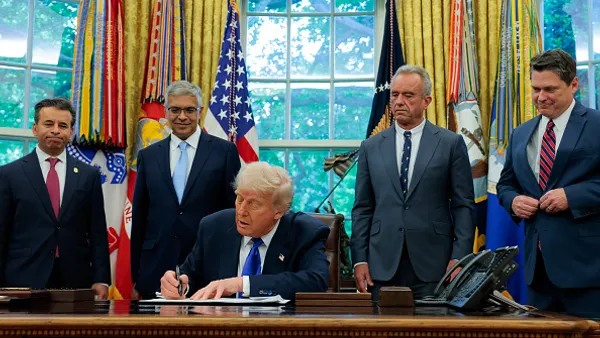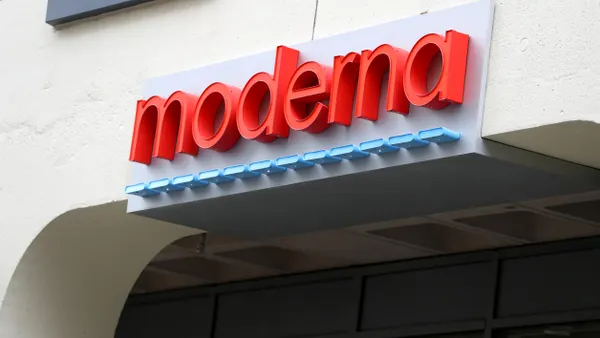Dive Brief:
- About a week after Philippine legal authorities claimed they have probable cause to indict a wide range of officials over deaths stemming from the use of Sanofi's dengue vaccine, U.S. regulators are grappling with an upcoming approval decision expected by May 1.
- In the latest step Thursday, an advisory committee to the Food and Drug Administration narrowly voted to not recommend the vaccine's approval for people 9 to 45 years old. While the group was evenly split on the safety vote, 7-7, the experts leaned against effectiveness by a margin of 7-6 with one abstention.
- However, the committee gave a thumbs up for treatment in a smaller patient population, from 9 to less than 17 years old. For that age range, the advisers favorably voted 13-1 on efficacy and 10-4 on safety. In a short statement provided to BioPharma Dive, Sanofi said it would continue to work closely with the agency as it awaits a regulatory decision.
Dive Insight:
Sanofi has submitted Dengvaxia for U.S. approval to prevent dengue disease caused by serotypes 1-4 of the virus. While it was eyeing an age range of 9-45 years old, the negative vote makes that an unlikely approval outcome.
The backdrop of legal actions in the Philippines raises further questions on Dengvaxia. After the country launched a massive vaccination campaign in 2016, its health department suspended the program in November 2017.
In an interview last year with BioPharma Dive, Elaine O'Hara, the chief commercial officer in North America for Sanofi Pasteur, said the vaccine's issues center around patients who are seronegative. Analysis of study data from 2018 also showed seronegative individuals had a higher likelihood of hospitalization after taking the vaccine, leading the World Health Organization to revise its recommendations.
Since then, the situation in the Philippines has only gotten more contentious. Last Friday, the country's Department of Justice said it has probable cause to indict Sanofi officials and former and current state health officials over multiple deaths related to Dengvaxia's use, Reuters reported.
With all that unfolding, the same vaccine will face a regulatory decision expected by May 1 in the U.S.
Additionally, any regulatory OK for the U.S. would be for people living in endemic areas. According to the Centers for Disease Control and Prevention, nearly all dengue cases in the continental U.S. came from travelers or immigrants. But the last reported continental outbreak was in south Texas in 2005.
A U.S. approval would instead open up commercial markets in Puerto Rico, the U.S. Virgin Islands, Samoa and Guam, which the CDC says are all endemic for the virus.
Sanofi could face competition from another experimental dengue vaccine from Takeda, which announced positive top-line results from a Phase 3 study earlier this year.












